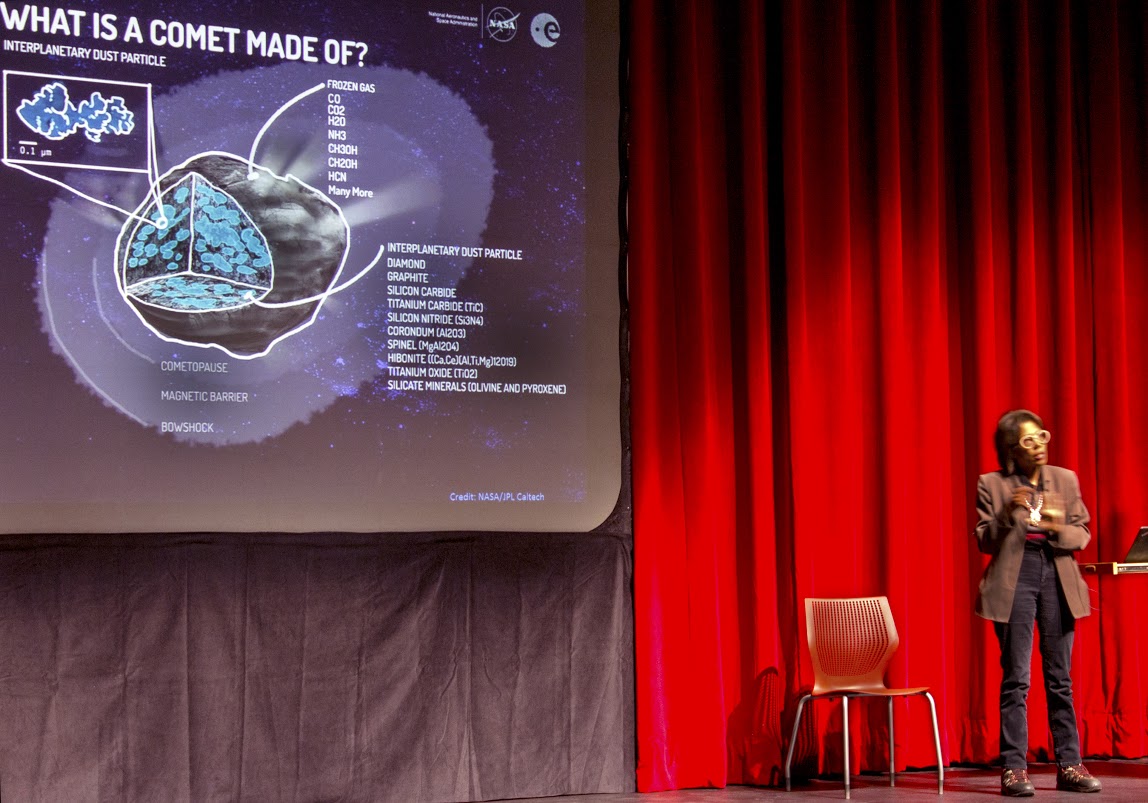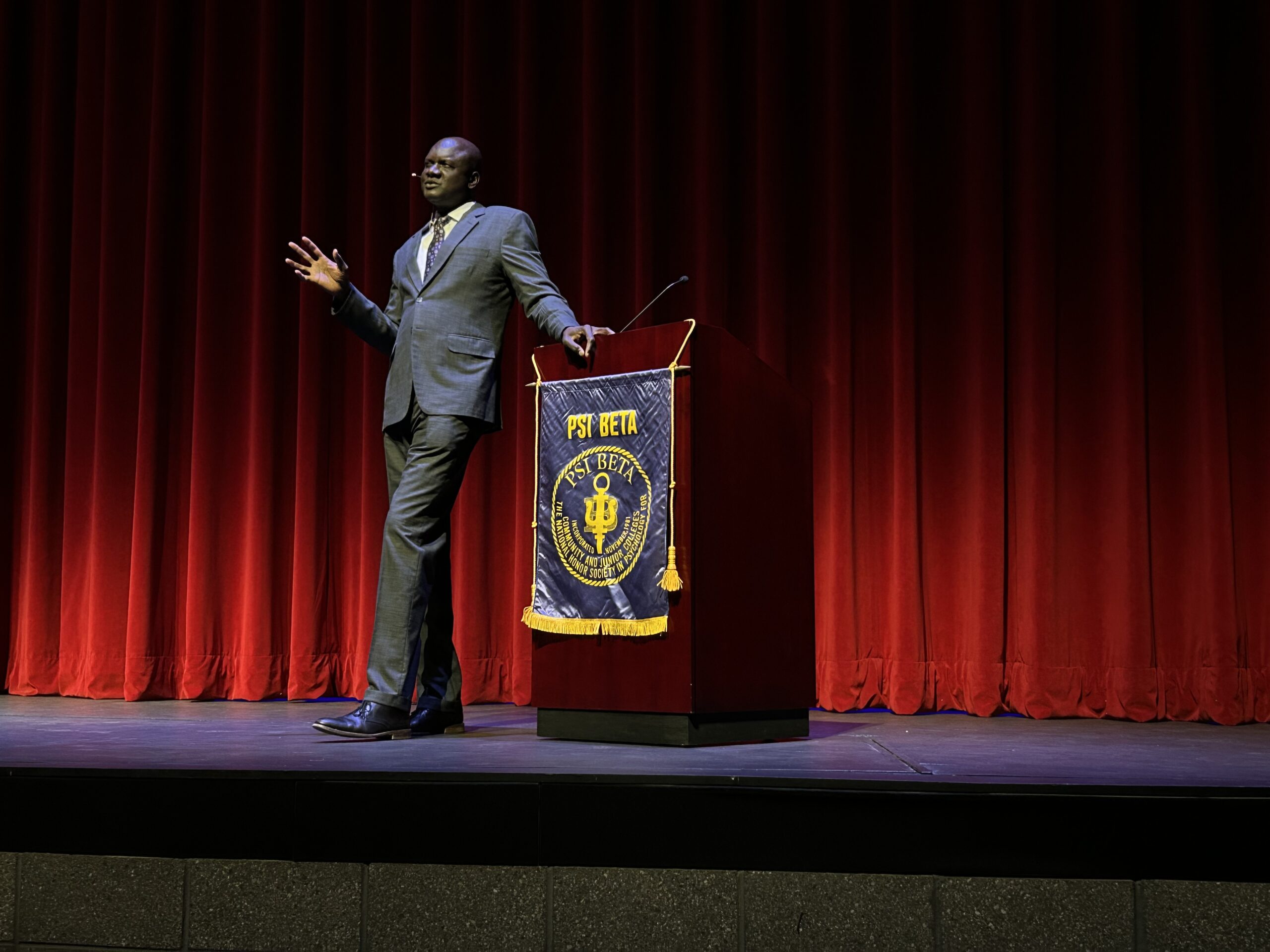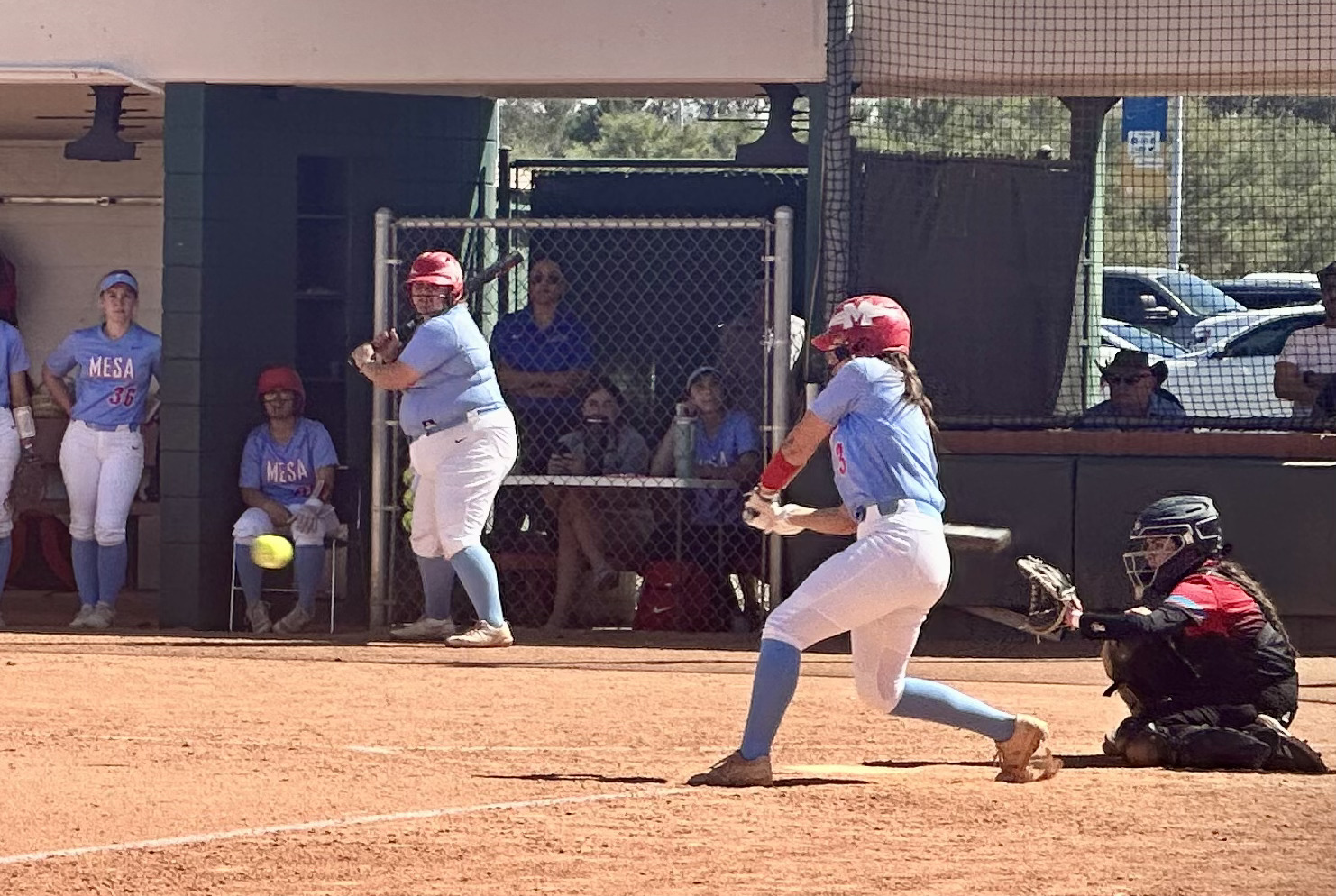NASA research scientist speaks at MCC

Mesa Legend
Claudia Alexander, a NASA research scientist, spoke at MCC as part of the Maricopa Community Colleges honors forum lecture series. On Feb. 18, Alexander took the stage at the Performing Arts Center on campus to speak about her role in the Rosetta Mission to study the comet Churyumov-Gerasimenko. The Rosetta lander touched down on the comet in November 2014, but the project actually began more than 10 years ago. “So I always have to make sure and say, ‘It’s a European Space Agency Mission,’” Alexander said near the beginning of her speech. “When we first started the Europeans were quite nervous that everyone would think it was a NASA mission even in Europe.” Alexander explained that she was hired as project manager for NASA’s role in the European lead mission. “I’ll be honest that back in the day this was considered a small mission,” she said.

Photo by Tanya Ritko / Mesa Legend
According to Alexander, NASA was going to only contribute a few instruments and staff to the project, insinuating that the mission was not considered to be a major one by the agency. “I’m really happy actually, that it was envisioned as kind of being a baby job, because I think it’s a great job.” Before Rosetta, Alexander was also project manager for NASA’s Galileo Mission to Jupiter. She was named woman of the year at the University of Michigan the same year she received a doctorate in physics of space plasma. Alexander has received many distinctions including the Emerald Honor for Women of Color in Research and Engineering. “I have to say that I never did think when I was your age that I would end up representing the United States of America on an international mission like this,” said Alexander. “It still kind of makes me pause when I walk into a room full of Europeans, mostly men actually, and know that I’m the American in the room, and that when they see me, they see the United States of America.”
During the lecture, Alexander described the status of the lander and orbiter still studying the comet in space. “Everybody asks me what is going to come of the lander,” said Alexander. “Basically we think we can bring it back in June.” Alexander explained that the lander is currently hibernating on the surface of the comet, but said that she believes the instruments will become responsive again with enough charge. Until then, research scientists on the mission are working to publish the findings from the lander. To learn more visit the Rosetta Mission website.









